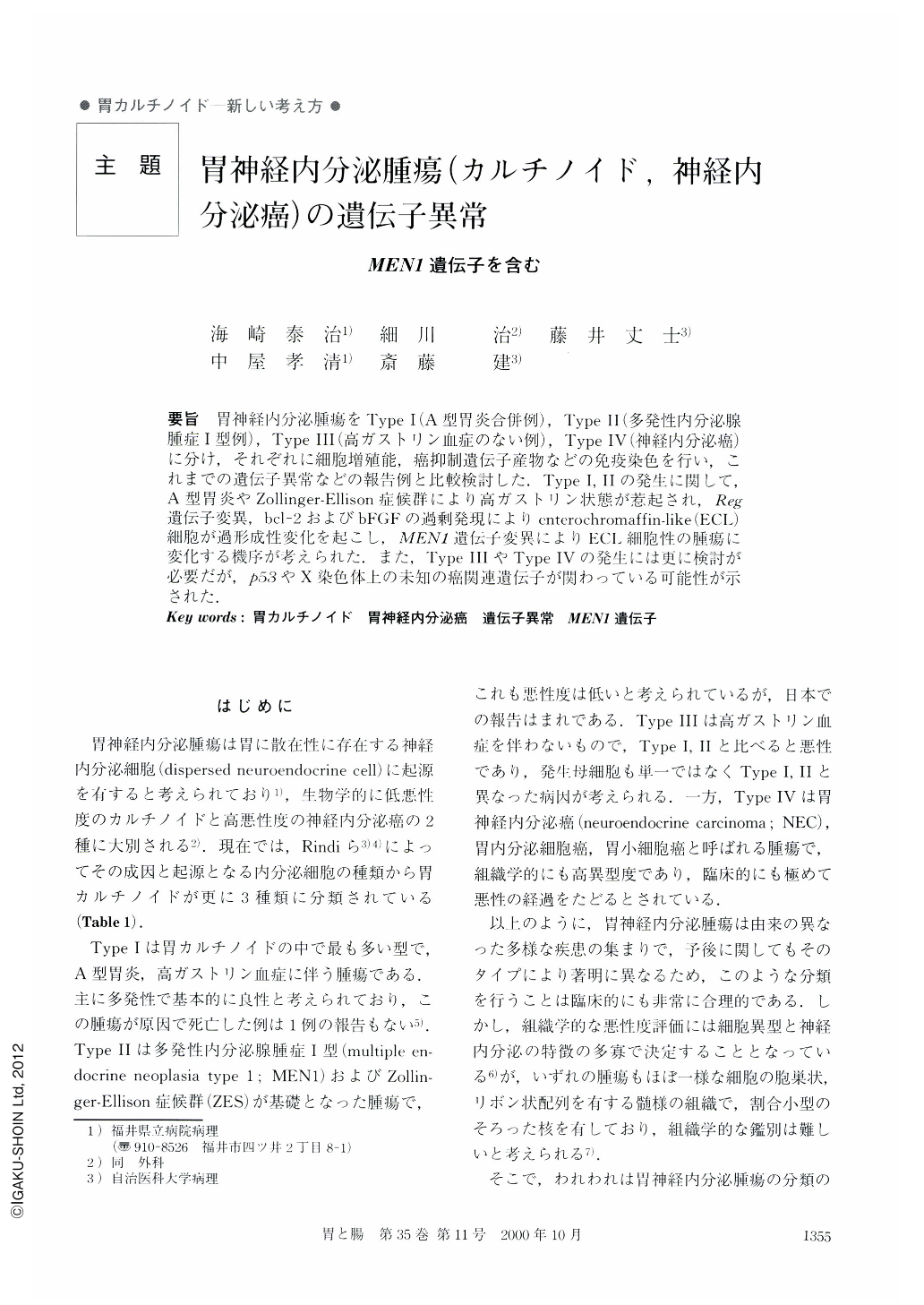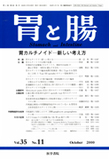Japanese
English
- 有料閲覧
- Abstract 文献概要
- 1ページ目 Look Inside
- サイト内被引用 Cited by
要旨 胃神経内分泌腫瘍をTypeⅠ(A型胃炎合併例),TypeⅡ(多発性内分泌腺腫症Ⅰ型例),TypeⅢ(高ガストリン血症のない例),TypeⅣ(神経内分泌癌)に分け,それぞれに細胞増殖能,癌抑制遺伝子産物などの免疫染色を行い,これまでの遺伝子異常などの報告例と比較検討した.TypeⅠ,Ⅱの発生に関して,A型胃炎やZollinger-Ellison症候群により高ガストリン状態が惹起され,Reg遺伝子変異,bcl-2およびbFGFの過剰発現によりenterochromaffin-like(ECL)細胞が過形成性変化を起こし,MEN1遺伝子変異によりECL細胞性の腫瘍に変化する機序が考えられた.また,TypeⅢやTypeⅣの発生には更に検討が必要だが,p53やX染色体上の未知の癌関連遺伝子が関わっている可能性が示された,
Genetic pathways of gastric neuroendocrine tumors have not been fully clarified. We investigated the proliferative abilities and some of the oncogene expressions of gastric neuroendocrine tumors and reviewed reports on the genetic alterations. We classified the tumors into Type Ⅰ (associated with chronic atrophic gastritis type A, CAG/A), Type Ⅱ (associated with multiple endocrine neoplasms type Ⅰ), Type Ⅲ (sporadic), and Type Ⅳ (neuroendocrine carcinoma) according to Rindi's report. For the induction of Type Ⅰ, Ⅱ, the proliferation of enterochromaffin-like (ECL) cells is triggered by the trophic stimulus of hypergastrinemia, which occurs consistently in cases of CAG/A or Zollinger-Ellison syndrome. Reg gene mutation and overexpression of bcl-2 and basic FGF may lead the ECL cells to a state of hyperplasia. In addition, MEN1 gene mutation may represent the transforming event for the evolution from ECI. cell hyperplasia to neoplasia. For Type Ⅲ or Ⅳ, though further investigations are needed, the induction may be associated with p53 gene mutation or undetermined oncogenes in the X-chromosome.

Copyright © 2000, Igaku-Shoin Ltd. All rights reserved.


